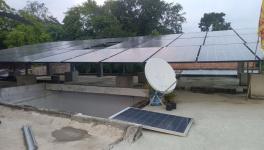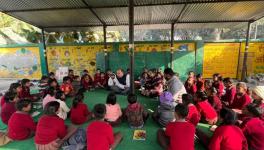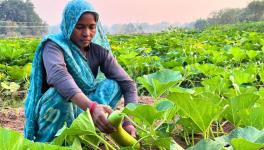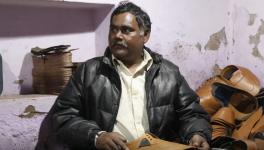COVID-19: Are Private Hospitals to Blame for Agra’s Spike in Cases?
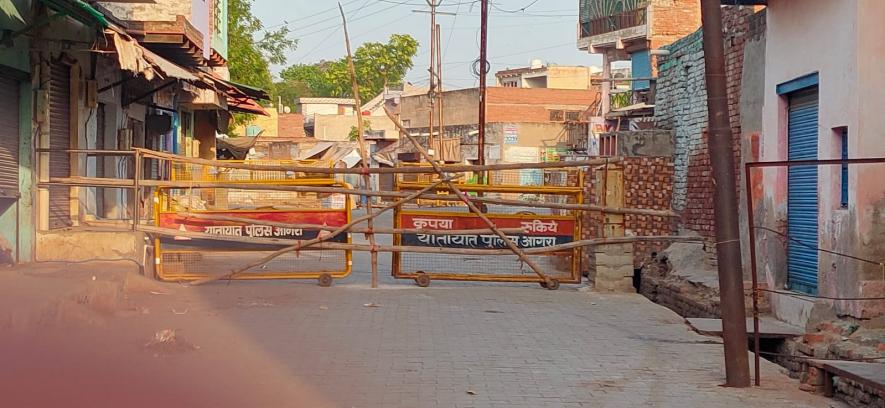
Lucknow: The home of the Taj has turned into a hot-spot for the novel coronavirus in Uttar Pradesh as Agra witnessed its biggest spike in instances of those affected on Thursday. The number of those tested to be COVID-19 positive is now 89, after 19 new cases were reported on Thursday and five on Friday.
Top sources say that five cases are suspected members of the Tablighi Jamaat while six individuals are believed to be connected to a hospital where an infected patient was being treated.
‘Private Hospitals Responsible’
Speaking to NewsClick, a nodal officer for coronavirus in the state who chose to be anonymous said the situation in Agra is alarming. “Out of the 19 new cases, five were related to people who had attended the Tablighi ‘ijtema’ (congregation) in Nizamuddin, Delhi. Another seven were associated with a private hospital from the city where a patient who later tested positive was admitted,” he said.
When asked why Agra has a high number of cases, city-based human rights activist Naresh Paras said that private hospitals in Agra were to blame. “Three private hospitals – SR Hospital, Sarthak Hospital and Paras Hospital have been identified with having the most number of positive cases. Most of the doctors and medical staff treating the patients were later found positive. When the situation got out of hand, all the patients were first shifted to SN Medical College (a government hospital) while doctors are undergoing treatment at Medanta, Gurgaon,” he said.
Paras added that despite instructions which mentioned that those experiencing symptoms “should go to government hospitals in the city, people were either hiding or getting themselves treated at private hospitals.”
A doctor treating suspected COVID-19 patients from Agra said that it was because there “are so many hospitals on the national highway and several patients who were admitted earlier were later found positive.” A doctor and a ward boy from SN Medical College tested positive after coming in contact with patients while another doctor at the Sainya block community health centre (CHC) tested positive as well.
When asked about the number attributed to the Tablighi Jamaat, the doctor said that there was no “no official data” on it “but local media is claiming 44 out of the total 89. Where they got this data from is unclear,” he added. He said that while it is true that members of the Jamaat have been quarantined in three different places, he was not sure of how many had reported positive.
On Wednesday, Agra reported its first death due to COVID-19. A 76-year old woman died in SN Medical College, Agra.
According to the District Magistrate Prabhu N. Singh, the woman’s grandson had returned from the Netherlands on March 15. He said that the grandson was not found positive after staying under quarantine for 14 days, but his grandmother, who was an asthma patients, got infected.
Twenty-two areas in Agra including have been declared hot-spots and sealed till April 15.
Supply of Essential Commodities a Worry
On the second day after the “sealing”, panic gripped the residents of some of the hot-spots with many people worried about the smooth supply of daily essentials, especially vegetables and milk.
While announcing a complete lockdown on Wednesday, the Yogi Adityanath-led state government in Uttar Pradesh assured citizens that essential goods would be home-delivered. However, residents in some sealed areas claimed that the administration could not ensure the doorstep delivery of essential commodities.
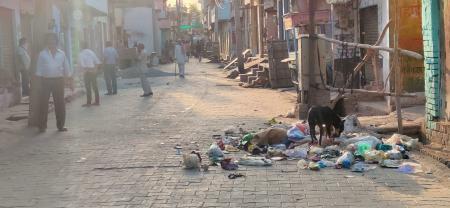
Namit Sisodia, a resident of Jagdishpura area, which was sealed on Wednesday, was disappointed with the administration. “In the name of daily commodities, we only get milk but no vegetables,” he said.
According to locals, the district administration and police had issued passes to grocery shop owners and other vendors for doorstep delivery but nothing came of it.
According to Namit, despite his area being completely sealed, people were forced to step out of their houses with basic commodities not provided by the administration.
Get the latest reports & analysis with people's perspective on Protests, movements & deep analytical videos, discussions of the current affairs in your Telegram app. Subscribe to NewsClick's Telegram channel & get Real-Time updates on stories, as they get published on our website.












